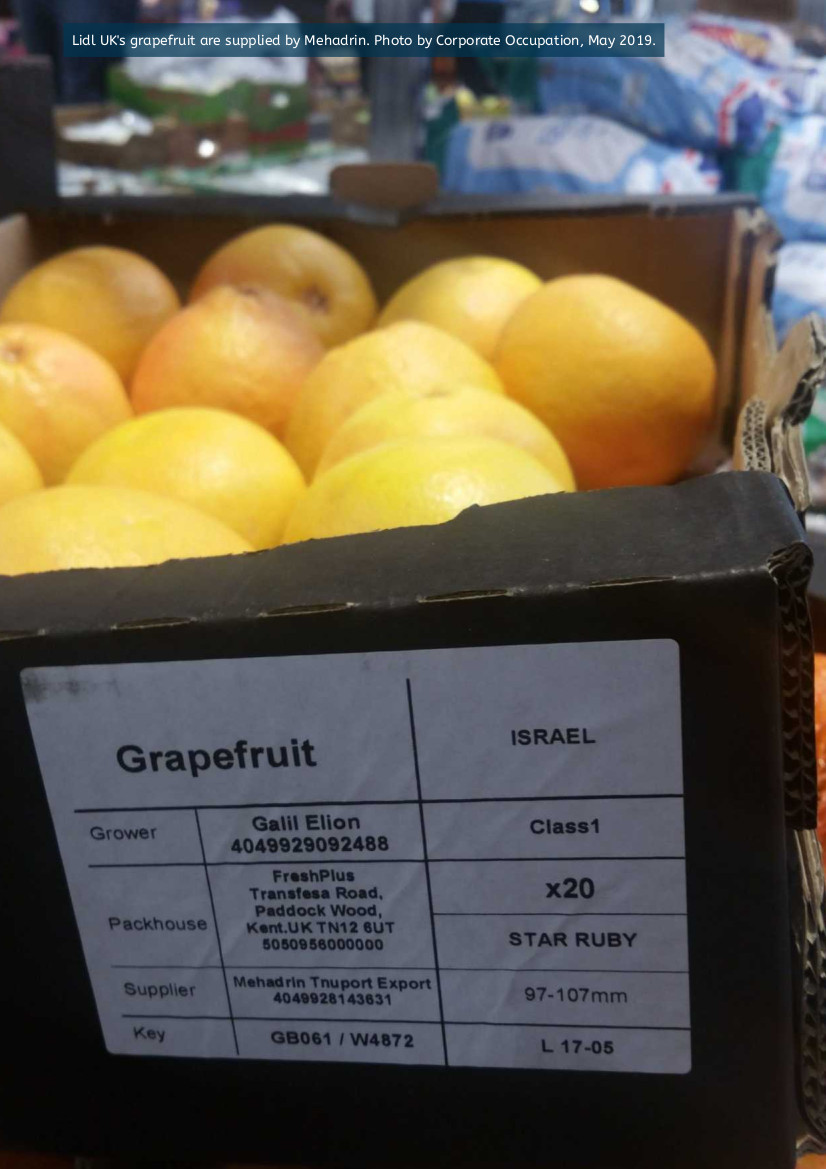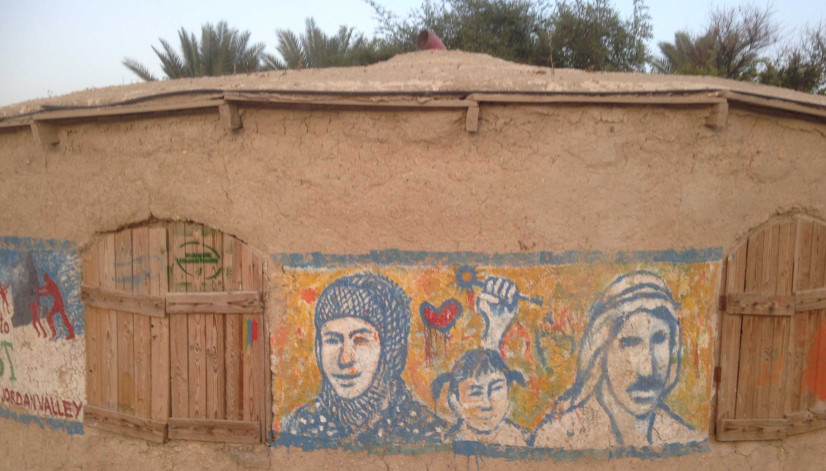US women’s anti-war movement, CODEPINK, has launched a new campaign highlighting the role Ahava Dead Sea Laboratories, an Israeli settlement-based spa products company that exploits Palestinian resources and land. After a number of high-profile protests, which spread from the USA to the UK, continental Europe and Israel, Stolen Beauty has already scored some significant goals. Sarah Irving talks to the campaign’s Nancy Kricorian.
What is the Stolen Beauty campaign against Ahava’s Dead Sea Products about?
In the wake of Israel’s Operation Cast Lead in Gaza, CODEPINK Women for Peace felt it was time to take up the call for Boycott, Divestment and Sanctions against Israel for its violations of international law.
Why did you select Ahava as a target?
We chose Ahava because its practices are against international law. Ahava’s main manufacturing plant and visitor center are based in Mitzpe Shalem, a Jewish settlement in the occupied Palestinian West Bank. Mitzpe Shalem is also part-owner of Ahava and the company’s profits are subsidizing this settlement (all West Bank settlements are illegal under international law). Additionally, Ahava excavates mud from the shores of the Dead Sea north of the Green line (the pre-1967 armistice line between Israel and Jordan), which means it is also violating the 4th Geneva Convention, which explicitly forbids an occupying power from exploiting for profit the captured natural resources of an occupied territory. Ahava also misleadingly labels its products as ‘Made in Israel’ when they are made in the Occupied West Bank.
How have you gone about campaigning against it? What combination of tactics have you used?
We have employed store protests, with Bikini and Bathrobe Brigades going into stores to let consumers know about Ahava’s illegal practices. We have also put pressure on Ahava spokeswoman, Oxfam Ambassador and Sex & the City star Kristin Davis to stop letting Ahava use her face and name to cover up their dirty practices. Her contract lapsed in September, which we counted as a victory. She is no longer working for Ahava, but continues her association with Oxfam.
Has the publicity around celebrity involvement with Ahava been a help or a hindrance?
It is always good to have a celebrity (Kristin Davis) and an ethical non-profit organisation (Oxfam) to use as leverage points in a boycott campaign. A boycott campaign is both ethical and strategic and garnering publicity is one strategy to use in tarnishing Ahava’s reputation.
How important has the Internet and international networking been for the campaign?
The internet has been crucial to our campaign. We have been able to stay in touch with CODEPINK groups around the country as we organize store boycotts, and we are also in touch with groups in the UK and the Netherlands who are also targeting Ahava. The internet has also allowed us to be in close touch with the Israeli women who run Who Profits (www.whoprofits.org), a website investigating and exposing the corporations involved in the Israeli occupation.
What impacts have you had on Ahava so far?
The fact that Ahava lost its celebrity spokesperson is a big deal. Beyond that, we heard through the grapevine that Ahava was looking for refinancing, and every bit of bad publicity we can generate makes it harder for them to find investors. This is a relatively new campaign and we have only begun our work. We are currently putting together a plan for going after Shamrock Holdings, the private fund of the Roy E. Disney family that owns 18% of Ahava.
How does the Stolen Beauty campaign fit into the wider Boycott, Divestment & Sanctions movement?
As I said before, a boycott is a moral and a strategic instrument. In terms of strategy, we feel that by targeting this particular company, which is based in a settlement and sells settlement products, we can publicize the illegality of all the settlements and the profits that are being made from these illegal actions. As a women’s peace group, it made sense for us to select a cosmetics company, and one that is widely available in the States. The Stolen Beauty Campaign is our contribution to the BDS Movement.
What would your ideal campaign outcome be? Can you envisage an ‘acceptable’ version of Ahava as a company, or do you see them as inherently unethical?
Our ideal outcome would be that the company would move its plant out of the West Bank, and it would stop exploiting Palestinian natural resources. But as two illegal Jewish settlements own and profit from the company -they are in fact subsidized by the company’s profits- they would also have to be bought out and/or move themselves out of the West Bank. In the unlikely event that all of this should happen, we would likely select another boycott target. The ultimate goal of the Stolen Beauty Campaign is to work for a just, sustainable peace for Palestinians and Israelis, one in which human rights and international law are respected and upheld.
What advice would you have for other people thinking of conducting an anti-corporate campaign on this kind of issue and company?
My advice would be to do a lot of research so you know all the possible moving pieces of your campaign before you start. I would also suggest reaching out to a broad coalition of partners, including Palestinians, anti-occupation Israeli Jews and European activists. Our work has been possible due to the example of, and the advice we have received from, friends in Adalah-NY (http://adalahny.org), the Palestinian Boycott, Divestment & Sanctions Movement (www.bdsmovement.net) and the Israeli Coalition of Women for Peace, specifically their project Who Profits.
For more information of the Stolen Beauty, see the campaign’s website at www.stolenbeauty.org.
Original article at http://www.corporatewatch.org.uk/?lid=3446
Apartheid in the Fields: From Occupied Palestine to UK Supermarkets (2020 Update), Endnotes
Here are the references for our 2020 update to Apartheid in the Fields P3. Introduction https://mondoweiss.net/2019/11/un-publishes-database-ofcompanies-profiting-off-human-rights-abuses-not-on-israel-but-myanmar/ P4. The ongoing ethnic cleansing of the Jordan Valley https://btselem.org/jordan_valley See, for example, https://corporateoccupation.org/2010/08/11/the-jordan-valley-meeting-point-the-jewish-national-funds-racist-alternative-reality/ https://m.btselem.org/jordan_valley http://jordanvalleysolidarity.org/reports/al-jazeera-how-israel-engages-in-water-apartheid/ http://jordanvalleysolidarity.org/reports/al-jazeera-how-israel-engages-in-water-apartheid/ http://jordanvalleysolidarity.org/news/tractors-and-water-tanks-confiscated-in-al-maleh/ http://jordanvalleysolidarity.org/wp-content/uploads/2008/03/jv%20map%20tony.jpg Read more



0 Comments